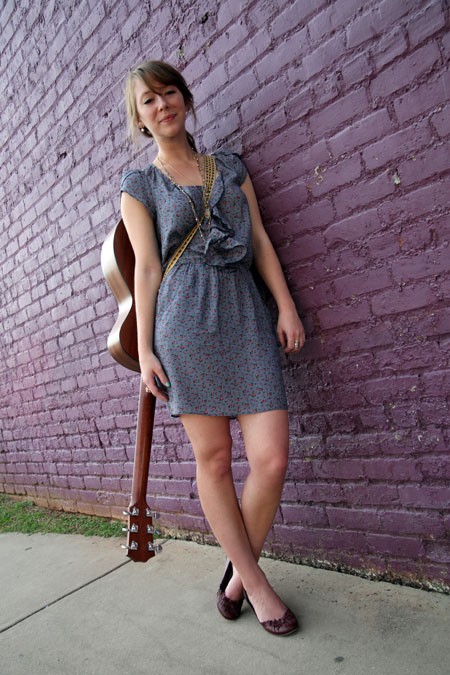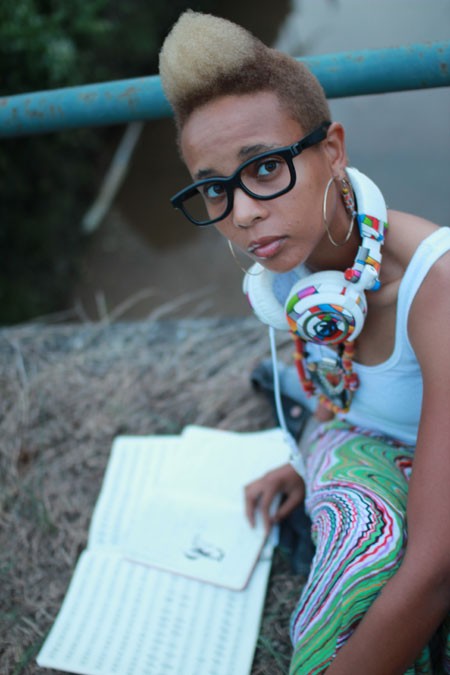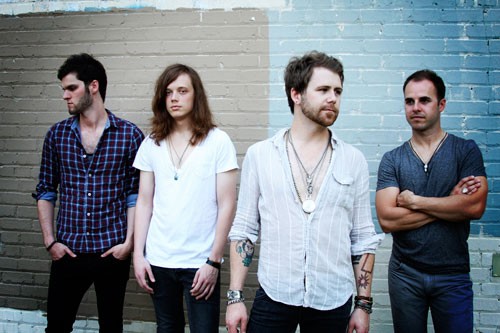Ah, the starving artist. So many ideas, so little money. As downloads and audio streaming continue leaching cash flow from the music business, musicians are seeking funding for projects and materials on Internet sites including Kickstarter, Indiegogo and PledgeMusic. But with these DIY approaches to raising dough come new challenges. Just ask Charlotte's Fusebox Poet.

-
Fusebox Poet
"I think Kickstarter is a great tool to use, but you have to consider that you are asking your fans to give you their hard-earned cash upfront. That's bold, and it's not something you do lightly," says guitarist Paul Wright. Fusebox Poet spent a month before its recent campaign researching successful campaigns and coming up with rewards for donors and making a video to post with their plea.
"There were no surprises or curve balls. We understood everything and made a marketing plan behind it to make sure we reached our goals," says Wright. Fusebox Poet's campaign, which ended last November, exceeded its $5,000 goal by $460 — enough money to record with big-name rock producers Rick Beato (Shinedown, Corey Smith, Needtobreathe) and Ben Grosse (Depeche Mode, Sevendust, Filter).
Charlotte is full of success stories from musicians using these fund-raising platforms, which help fund everything from films and books to fashion and photography. The Shana Blake Band raised $630 to print copies of its EP and pay a graphic designer; Matrimony raised $1,035 to buy a touring van; Dirtbag Love Affair raked in $2,065 to record an album; and Natalie Royal raised nearly 250 percent of her $3,500 goal from 174 different backers to make her first full-length record.

- Jeff Hahne
-
Natalie Royal
"I reached my original goal within 24 hours," Royal says. She credits the personal touch she took to structuring rewards — writing haiku, baking cookies, making art and writing songs for donors — for her success. Over a year after her campaign wrapped, "I literally have just finished up the artwork, and I'm still finishing up doing the cover songs and original songs," she says.
Sometimes, campaigns fizzle without being completely funded, and other times the promised project never comes to fruition. According to a Feb. 8 story on NPR's Studio 360, "Animal Collective's Deakin raised $25,000 to travel to Mali and record local musicians in 2009. He has yet to deliver any music, and it's a constant subject of conversation among his fans." As Jason Pointin, editor of MIT Technology Review, told the NPR show, when "someone takes money for a project that they have no real intention of delivering, the investors are going to look for someone to find responsible."
Different services handle possible negative outcomes differently; with Kickstarter, if a project isn't fully funded, the pledged donations are never processed, and the artist is left empty-handed. However, Indiegogo lets artists keep the cash they raised.
Charlotte singer/songwriter Jocelyn Ellis fell short of her $5,000 fund-raising goal. But, thanks to Indiegogo, she got to hold onto the $3,042 she pulled in.

-
Jocelyn Ellis
"It was definitely beneficial, because even though I didn't reach my goal, people came from the community and offered to do things for me that I needed," she says. One of those things was the mixing of her record, which normally costs thousands of dollars. The campaign's press, she says, was pivotal, and it has set her up to rouse more serious private investors in the future.
"Showing that you take initiative with your own art, people really respect that. They want to see that you'll take your career in your own hands and do all that's in your power," Ellis says.
Aside from the rules about when and whether donations are dispersed to artists — with PledgeMusic splitting the difference, offering all-or-nothing funding for most campaigns and immediate dispersal of donations to artists trying to pre-sell a completed record — these services all work in basically the same way. Artists come up with a goal to, say, book studio time or travel to a festival. The savvy ones make a video explaining their needs and presenting themselves as charming and appreciative. Everyone must write an essay, telling potential donors who they are, what they are asking for and why. Finally, they conceive of a tiered reward system.

- Lisa Dawn Thompson
-
Brandon Kirkley & The Firecrackers
"We did things like putting people's names in the album, as a thank you. Or, for five bucks, you get an early download of the album," says Brandon Kirkley of Brandon Kirkley and the Firecrackers, who put the finishing touches on their record with the $1,570 they raised on Kickstarter. "We added some crazy things on there at the higher price range. One was an ice cream date with the band... At one level, we said we'll come play a show for you, an acoustic show at a venue of your choice."
Bands have to be careful not to choose unrealistic rewards. Kirkley's campaign ended just over a year ago, and the high school girl who pledged enough to get the ice cream date still hasn't had her sit-down with the band, despite both parties' efforts.
There's one more thing all these services share: they want a cut of the money raised. PledgeMusic takes the most, with a 15 percent commission on all pledges. Kickstarter takes 5 percent and an additional 2 percent goes to their parent company, Amazon. Indiegogo retains 4 percent of profits on fully funded projects and 9 percent on those that don't reach their fund-raising goal.
"They're making a pretty penny off of your fans and friends and families," Kirkley says. That can be a tough pill to swallow, but raising money through these platforms both legitimizes an artist's efforts and makes their calls for donations easier to share. Prior to services like these, options for crowd-sourced fund-raising were limited to e-mail chains and feeble cries on social media.
"It's a great idea, especially for bands. It's a good way to start community and a good way to get your fans to interact with the band and become part of the band family," Kirkley says. And others who have used Kickstarter and similar fund-raising platforms seem to agree; all the bands interviewed for this article shared Kirkley's sentiments.
In a volatile music-making marketplace, Kickstarter, Indiegogo and PledgeMusic offer artists a way to move forward. That's something we can all be thankful for.